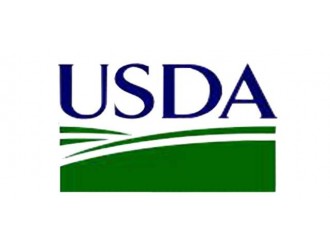食品伙伴罐�/a>导读�?009�?�?日,欧盟食品安全委员会提凹�a href='//www.sqrdapp.com/news/tag_1821.html' class='zdbq' title='糖类相关食品资讯' target='_blank'>糖类�?a href='//www.sqrdapp.com/news/tag_2973.html' class='zdbq' title='膳食纤维相关食品资讯' target='_blank'>膳食纤维以及脂肪的推荐参考摄入值、�/p>
原文报道9�/p>
EFSAlaunches public consultation on Dietary Reference Values for carbohydrates, dietary fibre, and fat
EFSA��s Panel on Dietetic Products, Nutrition and Allergies has provided advice on Dietary Reference Values (DRVs) for the European population for carbohydrates (including sugars), dietary fibre, and fats. EFSA��s scientific advice on nutrient intakes is in response to a request from the European Commission and will support EU policy makers in their decision-making process in the field of nutrition.
EFSA has been asked to review the existing population reference intakes in the light of new scientific evidence and taking into account more recent national recommendations. For this reason, EFSA will hold a dedicated meeting with nutrition experts from Member States on 7 and 8 September 2009, in addition to launching a public consultation on its draft opinions on DRVs for carbohydrates, dietary fibre, and fat. The scientific community and other stakeholders are invited to send their comments to EFSA by 15 October 2009.
Regarding the recommended daily intakes of carbohydrates, sugars, dietary fibre, and fats, the Panel concluded that:
- The intake ofcarbohydratesshould be between 45 to 60% of total energy intake.
- No recommendations forsugars (either total or added)can be given due to the insufficient data available.
- 25 grams per day ofdietary fibreare adequate for normal bowel function in adults.
- The evidence regarding the role of glycemic index and glycemic load[1] in weight maintenance and prevention of diet-related diseases is still inconclusive
- Intakes offatsshould range between 20 to 35% of the total energy intake, with different values recommended for infants. Intakes of bothsaturated and trans fatty acidsshould be as low as possible within the context of a nutritionally adequate diet. The Panel also provided advice regarding the setting of DRVs for mono- and polyunsaturatedfatty acidsas well as cholesterol.
详情见:http://www.efsa.europa.eu/EFSA/efsa_locale-1178620753812_1211902778363.htm?WT.mc_id=EFSAHL01&emt=1











 地区9�/font>
地区9�/font>

 欧盟评估转基因玉米MO
欧盟评估转基因玉米MO
 欧盟评估一种麦芽糖淀
欧盟评估一种麦芽糖淀 美国拟撤销若干肉类叉�/a>
美国拟撤销若干肉类叉�/a> 鲁公网安� 37060202000128叶�/a>
鲁公网安� 37060202000128叶�/a>



